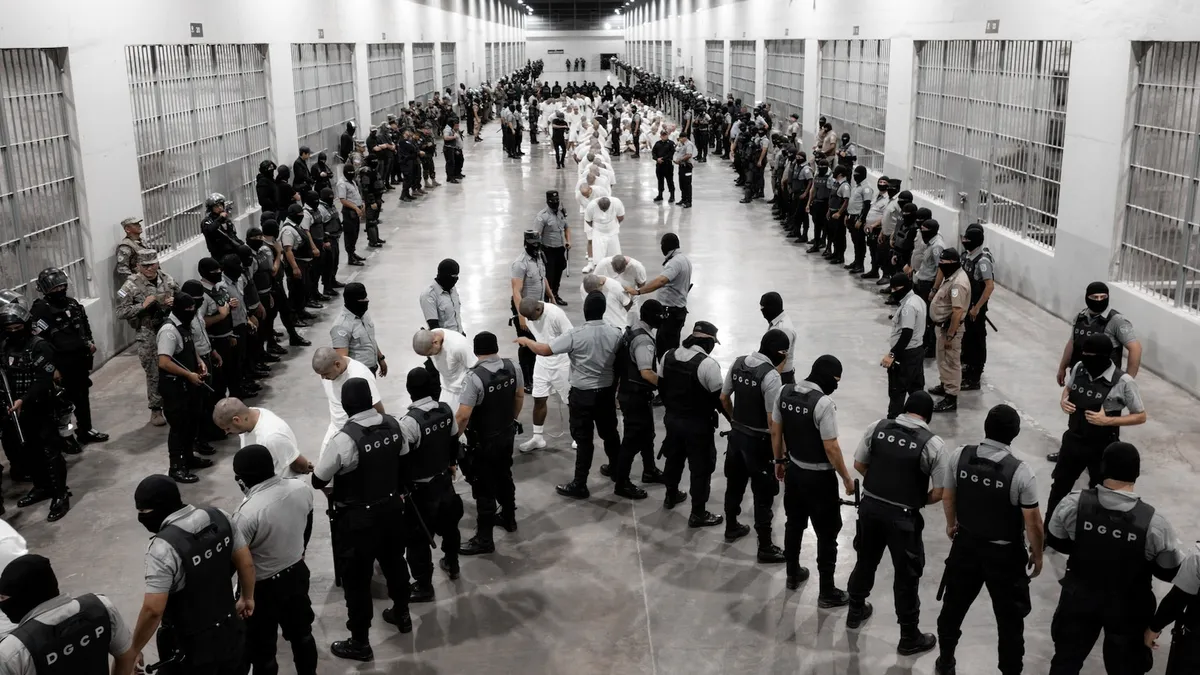
Last week, two planeloads of alleged Venezuelan gang members were deported to El Salvador, sparking significant controversy and concern. Among those deported were eight female detainees, who were subsequently returned to the United States. This development was revealed through sworn declarations submitted to the court on Monday, shedding light on the troubling circumstances surrounding these deportations.
A Venezuelan woman, identified in court documents as S.Z.F.R., recounted her harrowing experience. She described being transferred to a detention center in El Paso, Texas, before being sent to El Salvador last Saturday, alongside seven other Venezuelan women. In her declaration, she expressed her confusion, stating, "I asked where we were going and we were told that we were going to Venezuela." This experience highlights the lack of transparency in the deportation process.
Many detainees on the plane reported being involved in immigration proceedings and awaiting hearings in immigration court. S.Z.F.R. noted that all detainees, including the women, were shackled during the entire journey, even during a lengthy refueling stop in another country. This raises serious questions about the treatment of individuals in custody and the conditions of their deportation.
According to S.Z.F.R., detainees were pressured to sign documents they did not understand. "The government officials were pushing them to sign the documents and threatening them," she testified. It was reported that these documents were admissions of membership in the Tren de Aragua (TdA), a Venezuelan gang whose criminal activities led President Donald Trump to invoke the Alien Enemies Act, facilitating expedited deportations with minimal due process.
During a hearing before the U.S. Court of Appeals for the D.C. Circuit, an attorney from the ACLU, Lee Gelernt, indicated that the organization plans to submit the coercive documents signed by the detainees to the district court. "We will put into the district court the piece of paper that individuals are getting that specifically says, 'You're not entitled to review,'" Gelernt asserted, emphasizing the ongoing legal battle surrounding these deportations.
In response to these events, U.S. District Judge James Boasberg issued a restraining order to temporarily halt such deportations. However, the Justice Department has since challenged this order in the U.S. Court of Appeals. The Immigration and Customs Enforcement (ICE) has acknowledged in sworn declarations that many of the noncitizens deported last week under the Alien Enemies Act did not have criminal records in the United States, raising further doubts about the validity of these deportations.
After landing in El Salvador, S.Z.F.R. stated that the women remained on the plane while the men disembarked. She recalled asking, "What happens to us?" and being informed that "the president of El Salvador would not accept women." Ultimately, she was told they would be returned to detention in the U.S., and she was flown back in the middle of the night.
In a separate declaration, a Nicaraguan migrant also reported being returned to the U.S. after being on one of the planes. He overheard a Salvadoran official telling an ICE officer that the Salvadoran government would not detain individuals from other Central American countries due to potential conflicts. He also noted that females were not mentioned in the agreement regarding deportations, leading to their refusal to accept the women.
These revelations about the deportation process raise critical questions about the treatment of detainees and the legal frameworks governing deportations. As the ACLU and other organizations continue to challenge these actions, the implications of such deportations on human rights and immigration policy remain at the forefront of public discourse.